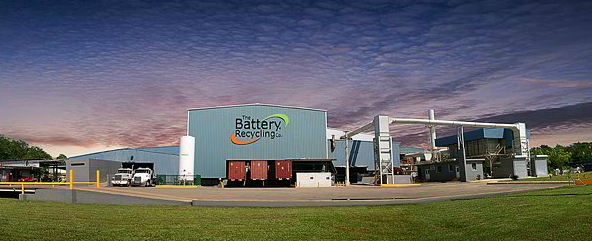EPA takes action against Arecibo battery recycling company

The U.S. Environmental Protection Agency announced Wednesday it has taken legal action against the Battery Recycling Co. requiring the company to take multiple actions to reduce the pollution of air and water from lead at its Arecibo facility.
In its investigation of the plant located in the northern town’s Cambalache sector, the EPA found potential violations of the federal Clean Air Act and the Clean Water Act.
The Battery Recycling Company is a secondary lead smelter, which recycles used motor vehicle batteries and produces approximately 60 tons of lead — a toci metal that can cause damage to a child’s ability to learn and a range of health problems in adults — per day.
“It is vitally important that the Battery Recycling Company control the lead that is escaping into the air and water from its industrial facility to protect the health of facility workers, their families and the people who live in the area,” said EPA Regional Administrator Judith A. Enck. “The EPA legal action requires the Battery Recycling Company to improve its operations to protect people’s health and the environment. Our work is not done. EPA’s evaluation of the company’s compliance with federal environmental laws is active and ongoing.”
To address the company’s air pollution problems, the EPA issued an order requiring improved monitoring and reporting, preventative actions and operational improvements by the company.
“As an entity regulated by EQB and EPA, Battery Recycling must fully and timely comply with all applicable regulations. Today’s order reflects the work done by EPA, EQB, and other government agencies to ensure compliance,” said Pedro J. Nieves Miranda, Chairman of Puerto Rico Environmental Quality Board. “We will continue working to protect the well being of the Arecibo community, Battery employees, their families and the environment”.
EPA’s investigation found that in 2007, the company reconstructed and tested a furnace at its facility without properly notifying the federal agency. The company built another furnace in 2010 and informed EPA, but failed to notify the agency of its testing of pollution control equipment.
“In both cases, the company failed to notify EPA of the date the furnaces went into operation. These notifications are important because physical and operational changes potentially increased the amount of pollution the facility generates. The company also failed to provide EPA with required records and reports,” the EPA said in a statement issued Monday.
Furthermore, the EPA’s order requires Battery Recycling Company Inc. to properly operate its leak detection system immediately to detect and reduce dust from escaping into the air.
Meanwhile, under a second order issued July 13, 2011, the EPA has required the company to improve the way it manages run-off from rainwater and correct violations of the federal Clean Water Act.
The facility discharges storm water into the Caño Vieques, which flows into Caño Tiburones and eventually empties into the Atlantic Ocean.
“At the time of EPA’s inspection, the Battery Recycling Company did not have the required storm water pollution prevention plan available, and did not have the required records related to monitoring, sampling, inspections and training,” the federal agency further noted. “Industrial materials and operations were not protected from rain and the exposed areas were not clean or in order. Additionally, the facility failed to carry out best management practices to control storm water runoff at its site.”
The company has also been ordered to develop a plan to comply with environmental regulations related to storm water management and follow best management practices to control storm water runoff. In addition, the Battery Recycling Company has been ordered to identify and control water pollution unrelated to storm water runoff in areas including the repair shop, and storage and loading areas. Last, the facility has been ordered to report on its progress to EPA on a quarterly basis.
The orders are the latest in a series of actions EPA has taken to protect people’s health and the environment in Arecibo.
“EPA will continue to work with the company and federal, Commonwealth and local officials to develop a long-term solution to the lead problems in Arecibo, and will keep the community fully informed,” the agency said.















